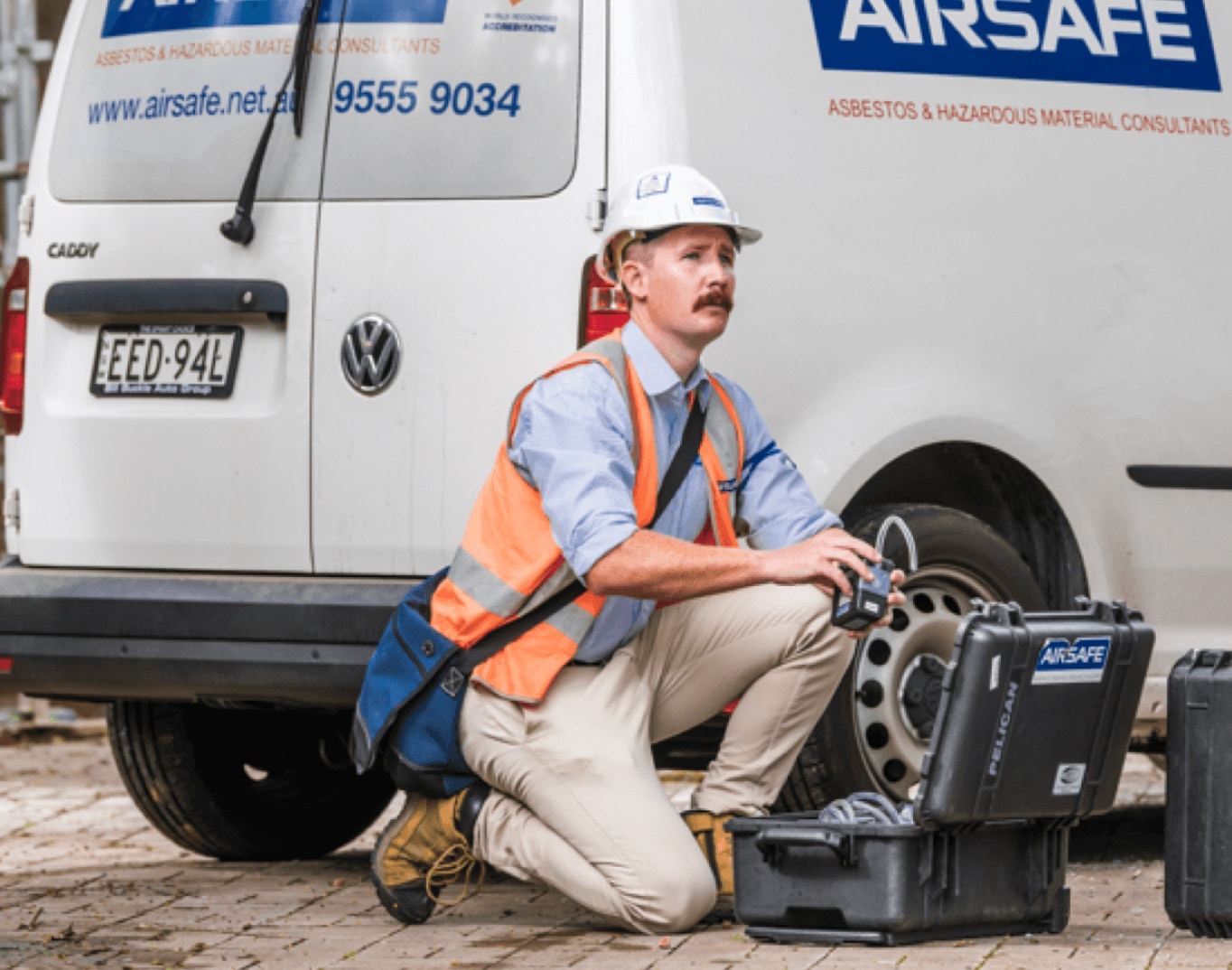Why choose Airsafe for crystalline silica testing and monitoring?
Airsafe offers a complete suite of services to control the risk of crystalline silica dust exposure. We also give you the reassurance of knowing you’re dealing with one of NSW’s most experienced and respected occupational hygiene consultancies.
We carry out all silica dust testing in a NATA-accredited laboratory.
If crystalline silica is identified during air testing, we develop an exposure assessment strategy and help you implement regulatory requirements for occupational health and hygiene.
We also conduct on-site silica air testing and monitoring. Airsafe is accredited by NATA for volume measurement. All filters are analysed by a NATA accredited facility.
Airsafe test reports have metrological traceability, and all work is completed in accordance with the relevant Australian Standard.
Crystalline silica: what is it and where is it found?
Silica or silicon dioxide is a very common natural mineral, found in most rocks and soils. It comes in both non-crystalline and crystalline forms. The crystalline form is a possible hazard when it turns into dust.
Crystalline silica is a common component in building materials like:
- bricks
- tiles
- concrete
- engineered and natural stone products
- sandstone
- fibre cement sheeting
Activities that disturb these materials can generate dangerous silica dust. These include:
- stone masonry
- facade renovation
- blast cleaning of buildings, especially using sand
- many demolition processes
- concrete scabbling, cutting or drilling
- tunnelling
Crystalline silica health effects
Some crystalline silica dust particles are so small that they can penetrate deep into the lungs. These ‘respirable’ silica dust particles can cause serious lung damage or silicosis.
There are a number of forms of silicosis, depending on how much dust workers have been exposed to and over what period of time:
- acute silicosis, which can develop after a short exposure to very high levels of silica dust, within a few weeks or years, and causes severe inflammation and an outpouring of protein into the lung.
- accelerated silicosis, which can develop after exposures of 3 to 10 years to moderate to high levels of silica dust and causes inflammation, protein in the lung and scarring of the lung (fibrotic nodules).
- chronic silicosis, which can develop after long term exposure to lower levels of silica dust and causes fibrotic nodules and shortness of breath and can include progressive massive fibrosis where the fibrotic nodules in the lung aggregate.
Workers exposed to silica dust may also develop other diseases, including:
- chronic bronchitis
- emphysema
- lung cancer
- kidney damage
- scleroderma (a disease of the connective tissue of the body that causes scar tissue to form in skin, joints and other organs)
Crystalline silica exposure standard
The current exposure standard for respirable crystalline silica is 0.05 mg/m3 (time-weighted average).
This standard came into force in NSW on 1 July 2020, halving the previous exposure standard of 0.1 mg/m3.
Managing crystalline silica exposure
As a person conducting a business or undertaking (PCBU), occupational health and safety legislation requires you to identify hazards, assess risks and implement practical controls to protect workers’ health and safety.
What kinds of practical controls are possible with crystalline silica?
- If silica dust is discovered during sample testing, your first option should be eliminating crystalline silica by substituting another material.
- If substitution is not an option, you should try to minimise activities like cutting or drilling that create silica dust.
- As a last resort, you should control any dust created to reduce exposure, and make sure personal protective equipment (PPE) is worn by anyone at risk of exposure.
Contact us for silica testing & air monitoring today
Airsafe is here to help you ensure you comply with your obligations and keep your workers safe. We complete comprehensive crystalline silica dust testing & air monitoring to ensure your space is safe. To get our expert help, call us on 1300 888 338.



